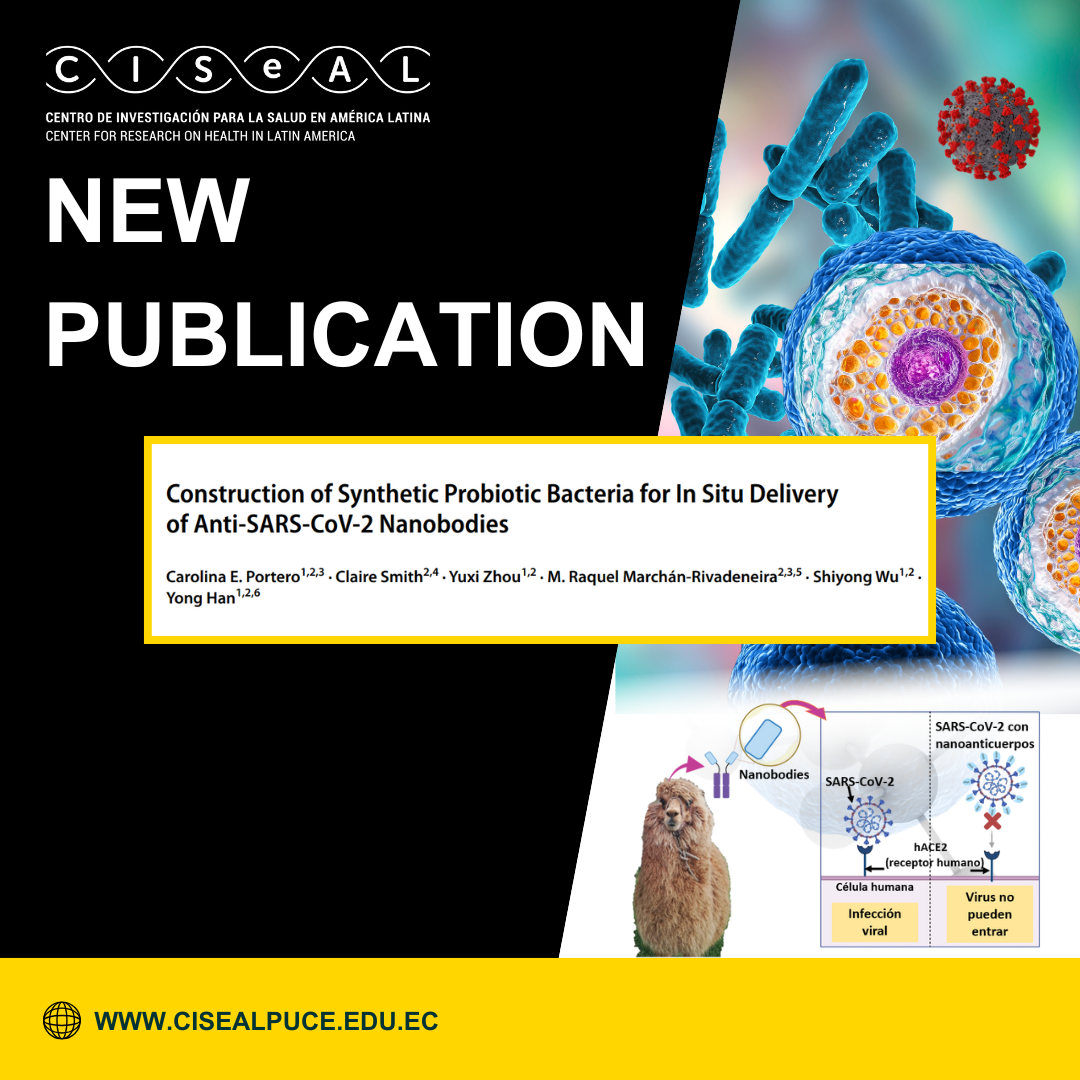
CISeAL researchers Carolina Portero, M.Sc., in collaboration with Dr. María Raquel Marchán-Rivadeneira, have developed a study that proposes an innovative strategy to combat SARS-CoV-2 infections through the development of synthetic probiotic bacteria capable of producing and releasing neutralizing nanoantibodies directly at the site of infection. The work is based on the premise that, although vaccines have been fundamental in controlling the pandemic, there is still a need for antiviral therapies that block early stages of the viral cycle, such as the binding of the RBD domain of the spike protein to the human ACE2 receptor, a key process for the virus to enter cells. In this context, nanoantibodies, derived from camelid antibodies, offer advantages over monoclonal antibodies due to their small size, stability, and ease of genetic manipulation, but they face limitations associated with their rapid degradation and the need for repeated administration. To overcome these challenges, a recombinant strain of Lactococcus lactis, a safe and widely used probiotic, was designed to act as a biological vehicle for producing and carrying nanoantibodies. Through genetic engineering, vectors capable of expressing the H11-D4 and H11-H4 nanoantibodies anchored to the bacterial surface were constructed, optimizing the secretion and fixation system to ensure their stability and external exposure.
The experimental tests included expression analysis by western blot, immunofluorescence microscopy, and flow cytometry, which confirmed the correct production and localization of the nanobodies in the bacterial membrane. Subsequently, binding capacity to the spike protein RBD was evaluated using ELISA and immunofluorescence assays, demonstrating that the recombinant bacteria could effectively interact with the critical receptor-binding region. Finally, neutralization assays were performed using a lentivirus pseudotyped with the spike protein in human cells expressing hACE2, which showed that nanobodies displayed by L. lactis were able to significantly reduce viral infection. The results highlight the potential of this synthetic probiotic-based strategy as a platform for localized, continuous, and in situ delivery of antiviral therapies, opening new perspectives in the prevention and treatment of COVID-19 and other viral diseases that share similar entry mechanisms.
We invite you to read more details about this research at:
https://link.springer.com/article/10.1007/s12602-025-10758-1



